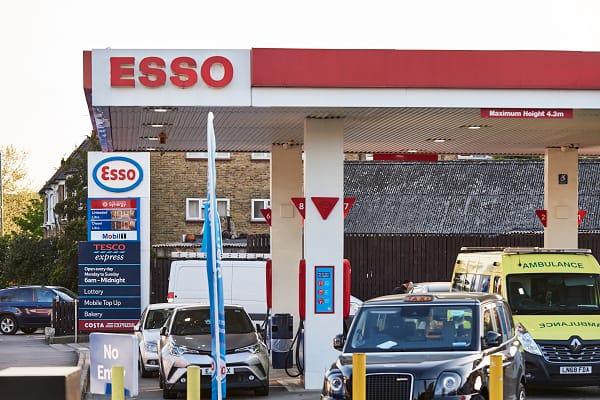Bussiness
More than £1,200 pay rise is required to keep pace with inflation – London Business News | Londonlovesbusiness.com

New market analysis by peer-to-peer real estate investment platform, easyMoney, reveals that the average annual UK salary would need to increase by £1,239 in order to keep pace with inflation in 2024.
easyMoney has analysed historic annual changes in the average rate of inflation* (based on the ONS Consumer Price Index) and the average salary* in the UK to see how the size of today’s gap between costs and earnings compares to previous years.
Inflation is the rate at which the price of goods and services increases over time. An inflation increase results in a reduction in the spending power of money. As such, an ideal world would see earnings and inflation increase at roughly the same rate. Unfortunately, this is rarely the case.
The data shows that in 2022, the average salary rose by 6.4% to £33,449. In the same year, inflation hit 9.1%. This means that despite a solid pay rise, salary growth remained -2.7% behind inflation.
In 2023, earnings saw another promising increase of 5.8% to reach an average of £35,404 per year. However, this increase was once again undermined by annual inflation of 7.3%. This means earnings were once again behind the pace of inflation, this time by -1.5%.
So will 2024 be the year that earnings finally keep pace with inflation?
Based on the average rate of inflation for 2024 so far, it can be forecast that by the end of the year, year-on-year inflation will stand at 3.5%
In order to match this increase with a complimentary 3.5% rise in earnings, the average salary would have to increase by £1,239 to reach £36,643 by the end of this year.
How best to invest your pay rise
If you’re lucky enough to get a pay rise, with inflation easing and the cost of living hopefully on its way down, it might be worth considering investing your extra income and making it work for you.
There are many ways to invest money, such as the stock market or buying property, but these tend to require huge sums of upfront cash to invest with. A far more accessible option is the world of ISAs.
The main selling point of ISAs is the personal ISA allowance which states you won’t pay tax on the interest you earn from an ISA investment of up to £20,000.
There are various types of ISA to choose from. A traditional cash ISA is essentially a savings account for which different banks provide different rates of interest usually ranging between 4%-6% annually.
But even stronger returns can come from alternative ISAs such as Innovative Finance ISAs (IFISAs).
An IFISA enables you to use your personal ISA allowance to invest in peer-to-peer lending and can generate higher returns.
For example, easyMoney’s property-backed IFISA has an annual target rate of between 5.53 and 10%. They do this by matching individual lenders – each providing a portion of the funds required – with a developer who wants to fund a new project.
Jason Ferrando, CEO of easyMoney said, “With inflation finally starting to slow after three years of remarkable growth, now is the perfect time to be asking for a pay rise in line with inflation.
This bump in earnings would only need to measure at least 3.5% as opposed to almost 10% a couple of years ago, so bosses and companies are going to be far more likely to oblige than they might have been in the recent past.
The downside of this is, of course, that a rise in line with inflation isn’t as much this year as it would’ve been before, so you might want to look at investing to bolster your income.”









